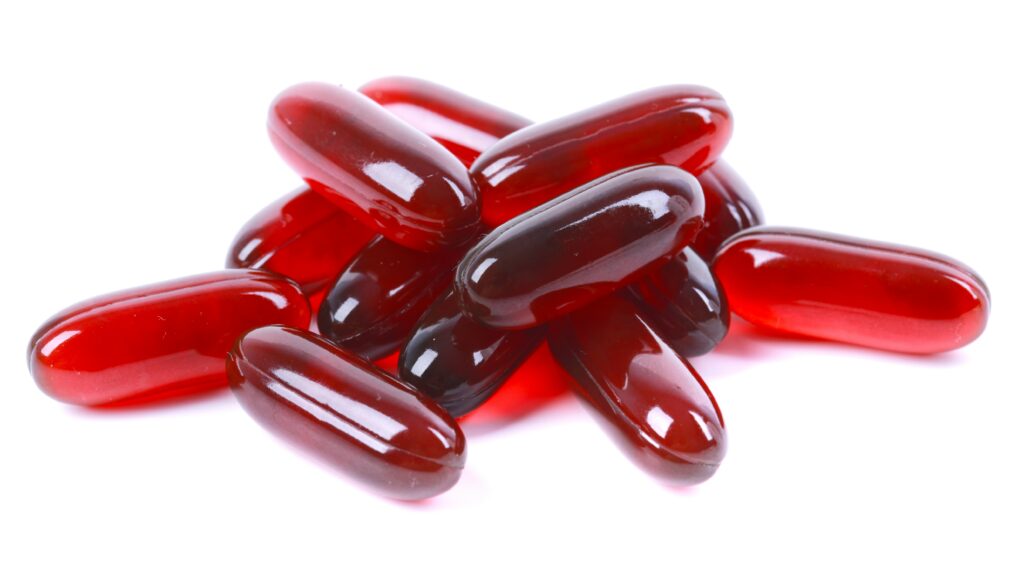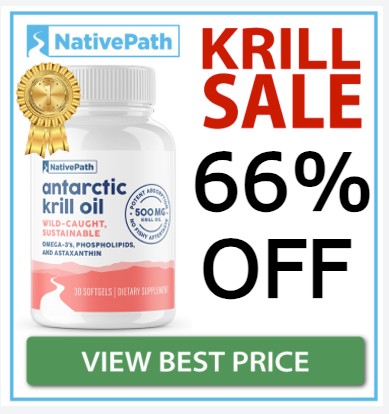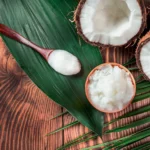Krill oil is extracted from tiny, shrimp-like crustaceans called Antarctic krill. They are extremely high in omega 3 fatty acids which are full of essential health benefits for the body. For many, fish oil is the go-to for omega 3 fatty acids; however, the popularity of krill oil is rising and for good reason.

What is Omega-3 and Why Do We Need It?
Omega-3 fatty acids are polyunsaturated (healthy!) fats that are essential to maintaining health, yet not produced by the body and therefore needed from other sources. They are necessary for the health of the cardiovascular system, and other body systems, and reduce inflammation in the body.

Several studies have specifically shown that Omega-3s can:
- reduce plaque in arteries
- lower bad cholesterol
- reduce chances of getting heart attack or stroke, even in those with heart disease
- lower blood pressure
- reduce chances of getting heart disease
- ease symptoms of ADHD and metabolic disease
- ease symptoms of bipolar disorder and schizophrenia
- reverse inflammation
- remove fat in the liver
- lessen severity of asthma in children
They also increase, improve, and assist in:
- lipid metabolism, encouraging fat burning and weight loss
- eye health
- brain health, especially in infants and children plus pregnant women
- mental health, depression and anxiety
- bone, joint and skin health
They may also help in fighting some diseases and disorders such as:
- age-related mental decline and Alzheimer’s disease
- autoimmune diseases such as
- type 1 diabetes
- chronic fatigue syndrome & other sleep disorders
- multiple sclerosis
- Crohn’s disease and Lupus
- hormone imbalance and menstrual issues
- may help as a preventative for cancer
The benefits of omega 3 are evidently incredible, and these essential fatty acids work to increase overall health on many levels.
The 3 types of Omega 3 are:
- Docosahexaenoic acid (DHA)
- Eicosapentaenoic acid (EPA)
- Alpha-linolenic acid (ALA)
ALA is found in nuts, seeds, and vegetable oils, with particularly high levels in flaxseeds. DHA and EPA, however, are specifically found in fish and krill oil.
So, what works best as a supplement?

Both fish and krill oil are effective ways of increasing omega-3 levels and experiencing the positive effects, but as you’ll see, krill oil has some added benefits.
Bioavailability
Krill oil is a much more effective way to absorb omega 3 fatty acids due its bioavailability. The fatty acids in krill oil contain phospholipids which means they are water and lipid soluble. Our cells absorb them directly and the health benefits can be experienced to their fullest degree.
On the other hand, the fatty acids in fish oil are made from triglycerides or free fatty acid esters which need to be hydrolyzed by lipase enzymes before they can be absorbed by the cell. For this reason, less is needed to get the right amount of EPA and DHA in the body when taking krill oil.
Antioxidants
Krill oil contains numerous antioxidants including astaxanthin which gives the oil its red color and protects the cells from oxidative damage plus supports heart health. It’s also high in vitamins A and E and contains choline, generally good for promoting cell health.
Purity
Unfortunately, the fish sourced for fish oil often contains heavy metals and toxins. Krill oil however, is always sourced in the wild. Krill feed on algae and as a result is considered an extremely pure source of omega 3.
As many marine animals depend on krill as a source of food, it is a highly protected species. The annual catch limit, set by the Commission for the Conservation of Antarctic Marine Living Resources (CCAMLR), is 620,000 tons, amounting to only 1% of the krill available in the ocean. This standard is significantly lower than standards set for other fish. In fact, the Antarctic Krill Fishery was given an “A” rating by the Sustainable Fisheries Partnership (SFP) for its high standards.
Krill oil triumphs as the most effective form of omega 3 fatty acids, thanks to its bioavailable nature, having the purest form and the added benefits of antioxidants.








